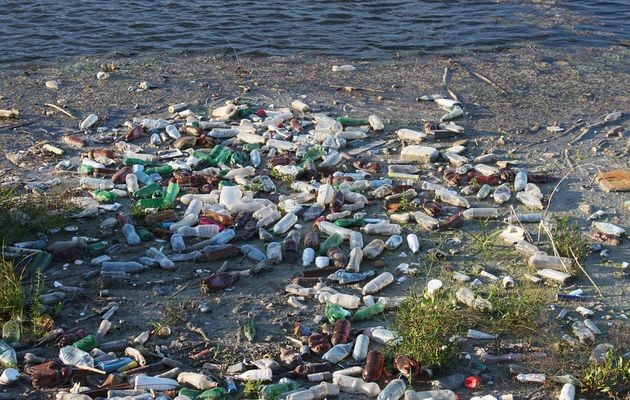A report warns that ocean plastic will triple in a decade. “We invest a lot of money for missions to space, but there’s nothing living out there. The sea bed is teeming with life”, experts say.
 Around 70% of all the litter in the oceans is made of plastic. / Photo: Pixabay.
Around 70% of all the litter in the oceans is made of plastic. / Photo: Pixabay.
According to the Foresight Future of the Sea Report for the UK government, “around 70% of all the litter in the oceans is made of plastic”.
Pollution of the environment with plastics is a global environmental problem, because “plastic debris contaminates habitats from the poles to the equator and from the shoreline and sea surface to the deep sea”.
“Plastic pollution results from a highly heterogeneous mixture of litter types differing in origin, size, shape and polymer type. It is harmful to wildlife, human well-being and to the economy”, the report explains.
FORESIGHT REPORT
The Foresight reports are written by experts to brief UK government ministers on medium and long-term significant issues. The Future of the Sea Report has been signed off by ministers from four different departments, as the authors emphasise the need for a joined-up oceans policy.
“We carried out a Foresight project to consider the role that science and technology can play in understanding and providing solutions to the long-term issues affecting the sea”, authors say.
The project “worked with policy-makers to identify the most important future trends, challenges and opportunities for the UK from the sea”, they add.
OCEAN PLASTIC COULD TRIPLE IN A DECADE
The report warns that the amount of plastic in the ocean will triple between 2015 and 2025, unless litter is curbed.
“It is clear that in the absence of any actions both the quantity and the associated impacts will increase”, it points out.
Globally, “production of plastics exceeds 300 million tonnes per annum and it is likely that a similar quantity of plastics will be produced in the next eight years as was produced in the whole of the 20th century".
But plastic “is just one issue facing the world's seas, rising sea levels, warming oceans, and pollution are real threats too”, it says.
“PLANET OCEAN”
The oceans are “critical to our economic future. Nine billion people will be looking to the ocean for more food. Yet we know so little of what's down there”, one of the authors, Prof Edward Hill from the UK National Oceanography Centre, told BBC News.
“We invest a lot of money and enthusiasm for missions to space, but there's nothing living out there. The sea bed is teeming with life. We really need a mission to planet ocean, it's the last frontier”, he added.
THE NEED OF REGULATION
Another of the authors, the chief scientist for the UK government's environment department Ian Boyd, agreed: “The ocean is out of sight, out of mind”, he said.
“There's a continuous process of exploring for new things to exploit in the oceans, and that's happening faster than we scientists can keep up with. My suspicion is legislation is also struggling to keep up, and obviously there are risks in that”.
He warned that “offshore wind farms, oil industries and mining firms were spreading into unexplored areas. Scientists need to get in there faster than the commercial people or at least at the same time, to put proper regulation in place to govern those industries”.
LOOKING FOR SOLUTIONS
“There is a precautionary principle to take here, which is: we should minimise the amount of plastic, both macroplastic and microplastic, going into the marine environment, in order to make sure that if there are toxic effects, those are being dealt with”, Professor Boyd explained.
The authors suggested efforts to reduce plastic pollution should focus on preventing it entering the sea, introducing new biodegradable plastics and public awareness campaigns about marine protection.
CASH IN ON “OCEAN ECONOMY”
Despite all these warnings, the Foresight Future of the Sea Report indicates that there are also opportunities to cash in on the “ocean economy”, which is is predicted to double to $3 trillion by 2030.
The authors believe that, “if governments can identify ways of protecting biodiversity in the seas, there are riches to be harvested, including nodules of metals and possibly even cures for cancer”.
According to them, the biggest industrial growth in the seas will come from offshore wind, followed by marine aquaculture and fish processing. The report also projects an increase in industrial capture of wild fish.

Las opiniones vertidas por nuestros colaboradores se realizan a nivel personal, pudiendo coincidir o no con la postura de la dirección de Protestante Digital.
Si quieres comentar o